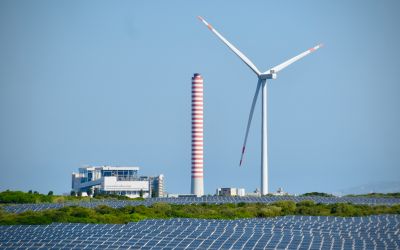Top global sustainable cities announced
Dutch consultancy firm Arcadis release Sustainable Cities Index with Frankfurt and London topping the list

Dutch consultancy firm Arcadis has named the top environmentally and economically sustainable cities in the world with Frankfurt, Germany, and London, England taking first and second place respectively.
The global Sustainable Cities Index was released on Monday with Denmark’s, Copenhagen coming third and the Dutch cities of Amsterdam and Rotterdam, Germany’s Berlin and the Spanish capital Madrid also among the top 10.
Seoul came 7th, Hong Kong 8th and Singapore was named 10th.
The research was conducted by the UK based Centre for Economics and Business Research (CEBR) and the independent economic forecasting and analysis firm assessed 50 cities on their performance in three essential sustainable development areas such as people, profit and planet.
The planet index looks particularly at air pollution, drinking water, energy consumption, recycling rates and sanitation.
City Executive Director for Singapore, Arcadis, Eugene Seah explained that the triple bottom line approach, which examines a range of social, economic, and environmental issues, “is one of the best approaches for a city to understand where it really stands. Such indices can help city leaders celebrate the areas they excel in and learn from others where they are lagging behind”.
Singapore is the only Asian city in the top 10 of the Planet sub-index and the city was recognised for its efforts of maintaining sustainability at the core of planning projects through the National Building and Construction Authority’s target of creating 80 per cent of all buildings sustainable by 2030.
However, reports suggest that Singapore could hold an even higher rank in the Sustainable Cities Index if they focused on using more efficient energy.
As the city develops a heavy emphasis on transport infrastructure and a strong healthcare system for the ageing population has earned Singapore a position in the Sustainable Cities Index due to thorough leadership and the thriving urban planning strategies.
Comparing Singapore with other cities such as Frankfurt with population sizes of 700,000, Dean of the National University of Singapore’s School of Design and Environment, Professor Heng Chye Kiang notes Sinagpore’s success “Despite not having the luxury of large wind or solar farms, or hydroelectric or geothermal projects, we have done well on the ‘Planet’ index”.






